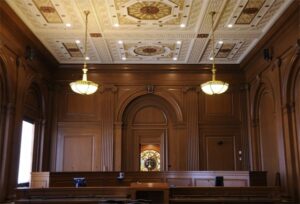United States v. Skelos, 2nd Cir.,filed 9/26/17: Reversal for Erroneous “Official Acts” Jury Instruction.
Applying the United States Supreme Court’s recent decision in McDonnell, the Second Circuit vacates convictions of two co-defendants based on an erroneous “Official Acts” jury instruction.
This case reverses the convictions of Dean Skelos, the former Majority Leader of the New York Senate, and his son. They were convicted after a four-week trial of Hobbs Act Conspiracy (see 18 USC 1951), Hobbs Act extortion, honest services wire fraud conspiracy, and federal program bribery. The issue upon which the Court reversed was the jury instruction that, in light of the recent United States Supreme Court’s decision in McDonnell v. United States, __U.S.__, 136 S. Ct. 2355 (2016) has been held unconstitutional.
The jury instruction at issue here is the “Official Act” instruction. The challenged instruction was this:
I have used the term “official act” in describing the crimes charged in Counts One through Eight. The term “official act” includes any act taken under color of official authority. These decisions or actions do not need to be specifically described in any law, rule, or job description, but may also include acts customarily performed by a public official with a particular position. In addition, official action can include actions taken in furtherance of longer-term goals, and an official action is no less official because it is one in a series of steps to exercise influence or achieve an end.
Because this language could cover “nearly everything a public official does” on behalf of constituents, including arranging meetings and so forth, it is unconstitutional. See United States v. Silver, 864 F. 3d 102, 113 (2nd Cir. 2017). The Court rejected the government’s argument that additional instructions given relating to the Hobbs Act extortion and federal program bribery charges mitigated the harm in giving this official act instruction.
The Court further found the instruction not to be harmless beyond a reasonable doubt. The government argued that Dean Skelos’s arrangement for or participation in certain meetings was circumstantial evidence of a quid pro quo for legislative votes. It also argued, though, that the meetings themselves satisfied the official act requirement. The Court concluded that considering the jury charge itself, along with the government’s arguments and the lack of instruction cautioning the jury that a meeting is not official action, it could not find beyond a reasonable doubt “that a rational jury would have found the defendant[s] guilty absent the error. United States v. Silver, 864 F.3d at 119.
The Court vacated the convictions and remanded for a new trial. The US Attorney’s Office has already indicated it intends to retry these defendants.

